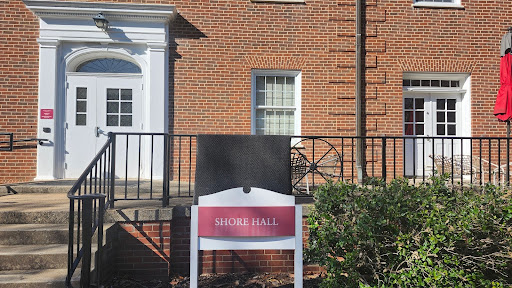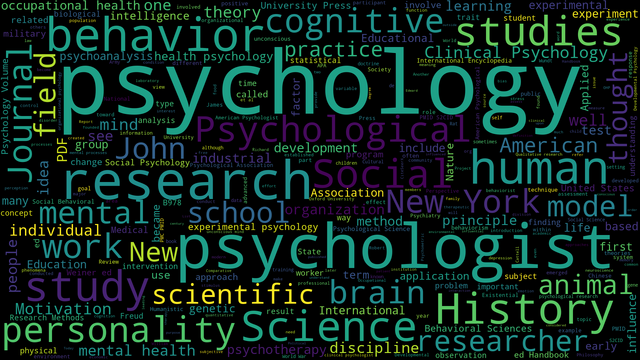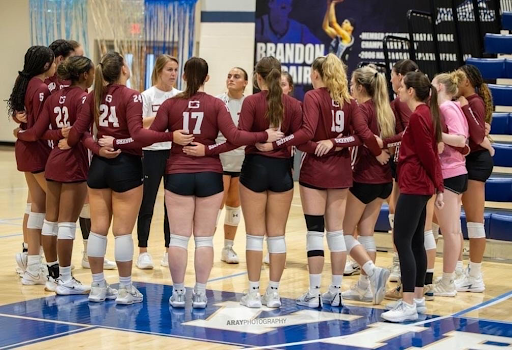“The age of the average is over,”said Thomas Friedman at the Bryan Series. “We all need to find our ‘extra’ to compete in this globalized market.”
On Tuesday, April 16, Thomas Friedman, New York Times foreign affairs Op-Ed columnist, came to Guilford to conclude the 2012–13 Bryan series with a controversial speech.
Deviating from his original plan, Friedman explained that sometimes journalists have to move rapidly in response to important evolving national events.
“Sometimes in my business, you have to pivot very quickly,” said Friedman. “Because of what happened in Boston yesterday, I have decided to pivot. Instead of talking about foreign policy, I’ll talk about Americans’ place in the world.”
Friedman stated that the happenings in Boston brought to mind memories of a tragic past experience.
“Yesterday’s events reminded me of when I was in Tel Aviv several years ago,” said Friedman. “A suicide bomber exploded all over the street, leaving only his brown hairy leg with only a sock on it. I’ll never forget what someone said: ‘We will have it all cleaned up in two hours. You’ll never know it happened.’”
He used these personal reflections as a prelude to the main content of his speech about America’s place in the world and his view on our country’s future. He closed by offering advice to the audience about the age of technology.
“We used to live in a connected world, but now we live in a hyper-connected world,” Friedman said. “I was reading the first edition of my book, “The World is Flat” (2005), just to remind myself of what I had written. I noticed something about it.
Facebook wasn’t in it, neither was Twitter. We are even more connected now than when I originally claimed the world was flat. When I wrote the book, Facebook wasn’t invented yet. Twitter was a sound. Applications were something you sent to colleges, and clouds were in the sky.”
Friedman’s point about the hyper-connectivity of the world received mixed responses from the Guilford community.
“I completely agree,” said Andy Strickler, dean of admission and financial aid. “Either through his example of Syria News Network, or watching my brother set up a call center in India, his idea that the world has made a very stark transformation is completely accurate.”
Jim Hood, professor of English, is not sure if these changes are good for society or not.
“Just because we can exchange information with incredible ease, does that mean we are necessarily more connected to one another as human beings in the ways that really matter?” said Hood. “I wonder if all our dependence upon devices is actually causing us to hyper-disconnect from our families, human traditions and natural landscapes — the actual places where we live and breathe. The Internet won’t mean crap if we don’t have good air and water and food.”
Friedman then discussed the changing meaning of “average” and pushed the audience to do more.
“Used to be, you could drop out of high school and get an average job at the steel mill paying average wages, have enough money to buy an average house, have (an) average two point zero kids, live an average life and have an average funeral and have an average obituary,” said Friedman. “Average used to be great. It’s not working anymore. Today, the main employer in Baltimore is Johns Hopkins Medical Center. You can’t cut the grass over there without a bachelor’s degree.
Average is officially over. … Find your extra.”
Instructional Technology Librarian Jessica Sender agrees.
“Fifty years ago, people with a high school degree could get a very good job and support their family,” Sender said. “That’s significantly harder to do today, if not almost impossible. His explanation resonated with me. In a time when students from all over the world are competing for jobs and careers, standing out among the crowd gets harder and harder. I also liked that he applied it to his own work. It’s not just young people that are struggling to make their mark.”
Julie Winterich, associate professor of sociology and anthropology, has a completely different interpretation of Friedman’s ideas about “average.”
“If we’re all special, aren’t we all the new average?” said Winterich. “Seriously,
I found that point too decontextualized and focused on the individual. There was no discussion of structural inequality, racism, classism, sexism, homophobia, etc.
“I found his talk too focused on the individual, as if we live in a social and cultural vacuum, and too focused on global competition for jobs.”
Diya Abdo, assistant professor of English, concurs with Winterich.
“I am not sure this is the kind of challenge I want Guilford students to take on,” Abdo said. “At Guilford, we strive for excellence, to become more. But, that’s excellence in equality, in integrity, in humanity, in stewardship, in global citizenship, in being in community, in principled problem solving. I am sure Friedman wants those things, but what I heard yesterday was a clear focus on excellence above others because of anxiety and fear of others.”
Friedman closed by offering the audience the same advice he offers his daughters.
“Think like an immigrant — stay hungry,” Friedman said. “Think like an artisan — take pride in what you do so that you’ll want to carve your initials in your work. Think like a starter-upper — stay in beta mode and constantly redefine yourself.
Think like a waitress at the Perkins Pancake House in Minnesota,” said Friedman of his favorite restaurant, where a waitress gave his friend extra fruit and received a higher tip as a result. “Whatever you do, whatever job you’re in, think entrepreneurially. Think about how you can invent, reinvent or add something extra.”
His closing advice also received both positive and negative responses.
“I loved it,” said Sender. “I think it’s very poignant and really good advice to carry with you.”
Adrienne Israel, vice president for academic affairs and academic dean, would offer counter advice.
“I would advise my own children to develop their spiritual lives, their relationships with God and to learn how to consistently respect others, especially when under pressure or when there is no one else around,” Israel said. “I would advise them to develop a strong sense of purpose and identity, to learn how to be kind and to remember that relationships make life meaningful.”
Even general impressions of the speech differ.
“I thought it was a great and provocative speech,” said Kent Chabotar, president and professor of political science. “Hyper-connected and average were words that resonated with me. In terms of how Guilford is improving its global education, check out SLRP II.”
Max Carter, director of the Friends center and campus ministry coordinator, left the speech with a different impression.
“Entertaining and informative, but a mile wide and an inch deep,” Carter said. “What is the purpose of ‘keeping up with China?’ Is it to make more money? I didn’t hear. I would have liked more substance to his philosophical view of the world.”
[photomosaic nggid=121]












Thomas • May 14, 2013 at 2:16 am
The speech presented some interesting ideas, and like most good speeches, raised more questions than answers. In that sense it WAS a provocative speech, but that’s exactly what we all need to help us realise the core truth presented by Friedman – yesterday’s answers will not work for today’s challenges.